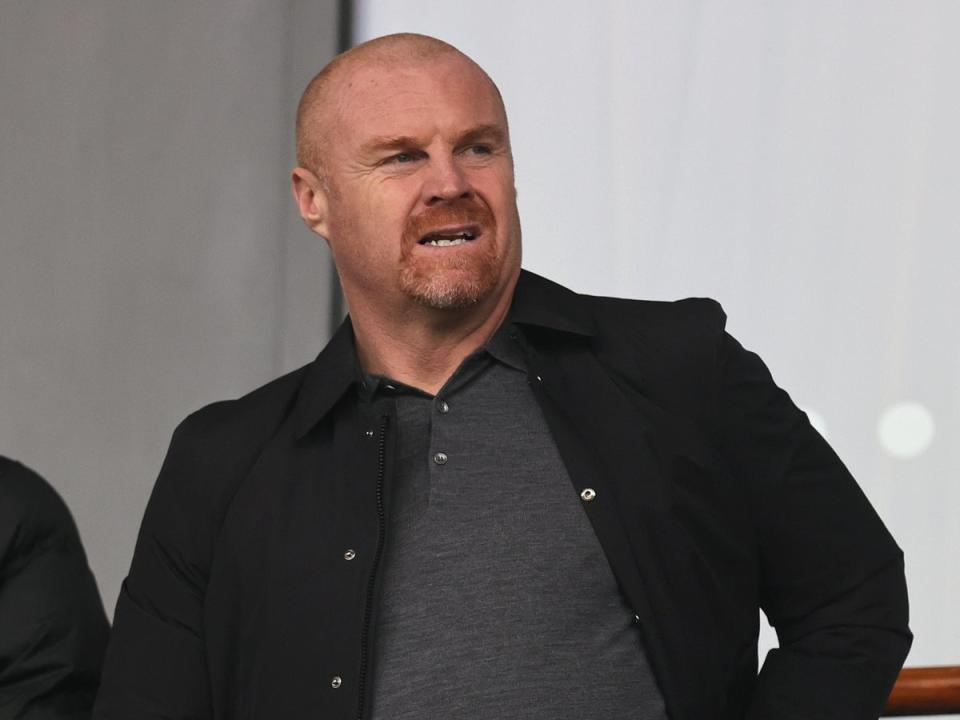Sean Dyche wants business as unusual as the ‘marmite manager’ gets to work at Everton

“I am a bit of a marmite manager,” said Sean Dyche and if marmite, with an old-fashioned air and a defiantly British feel, may have been an even more appropriate description than he intended, he arrived at Everton with a few admissions. “Not everyone wants me,” said Dyche. “Some managers get a head start because of a pre-loaded view. I’ve never asked for that.” In his own estimation, Everton might not have wanted him but a run of 11 defeats in 14 games and the possibility of a first relegation in 72 years. “Possibly if it wasn’t in the shape it was in, maybe I wouldn’t get the chance,” he said. “But I don’t mind that.”
Dyche was the unfashionable option but, while Marcelo Bielsa proposed taking over the Under-21s and potentially letting the senior side sink towards the Championship, probably the common-sense choice. He may have marked his arrival by conforming to an image for unsympathetic toughness by insisting on training in shin pads and not hats, but to him it is entirely logical.
“You train how you play,” he said. “Unless I’ve been out of the game for too long; you’re not allowed to wear hats when you play on a Saturday, you’re not allowed to wear snoods when you play on a Saturday and you have to, by the rules, wear shin pads.”
The stereotype of Dyche may be hard to ignore, but he is a more rounded individual. His principles may be constants from the past but some of his methods seem borrowed from the business world.
His first week at Everton has involved a consultation process, canvassing the views of his new players. He is the son of a management consultant; while he is now a successor to Harry Catterick and Howard Kendall, his influences include different kinds of managers.
“We did a Q+A session,” he said. “I gave them a sheet with some simple questions on. I didn’t want to lead them anywhere, the questions were as open and as short as I could make it. It allowed them the chance to express whatever they thought. I just wanted their feedback. It is a kind of business crossover, switchover that I had learnt about business and why they do it. There was only two out of the whole group who didn’t respond.
“I had a good chat with a few players, not in an office kind of chat but speaking to them generally: their careers, life and how they’re feeling. I always thought if you affect their lives you’ll affect their performance.”
Everton ended January with a weaker squad than they started it, after selling Anthony Gordon and failing to sign a forward. Dyche feels he has some untapped potential in his current squad. He has also sought to connect with the people who, in some cases, have floundered in Everton shirts. “I showed the players their pasts,” he added. “There are some unbelievable stories here about how they got to Everton, in their lives, not just football.”
If it shows Dyche is no dictator, asking questions opens him to unwelcome answers. “The thing with 360-degree feedback, as they call it in the business world, is that you have to be ready for the feedback,” he said. “It is not always great.”
The feedback at Goodison Park has scarcely been great of late: choruses of “sack the board” have become familiar. The marmite manager feels part of his task is to bring everyone together, just as his predecessor Frank Lampard did last spring. “The message is clear – unity,” he said. “I’ve been in there [Goodison Park] when it’s rocking, interesting on the other side. It is different when you park your car round the other side, when I’ve been scouting - always good natured. Even the most disgruntled Evertonians – give us a chance to stick by the team because they are important.”

Some of the dissent has stemmed from Everton’s decision-making. Dyche was half of a strange shortlist, with Bielsa. He argued that Burnley interviewed 12 managers when appointing him and assumed there were considerable differences among them. In talks last week, he managed to win over Farhad Moshiri. Though Everton have often felt divided, he spoke of an alignment. “It was through the club - owner, chairman, director of football, myself and the backing support of chief exec,” he said. “I spoke at length when I was interviewed about the core values.”
Those values make Dyche sound a traditionalist. He would probably deem that a compliment, but certainly does not think they are anachronistic. “The last club I was at, they’re deemed old-fashioned but they couldn’t be any more modern,” he said. “Pride, passion, honesty, trust, these are the things we have to stand for. This is the underbelly of the team.”
But the underbelly could be dragged under water. “It’s easy to take the wheel of the ship in calm water, not so much when it’s choppy waters,” Dyche said. He is the new captain of what had looked a sinking ship. But if snoods and hats won’t keep them afloat, his formula is entirely typical. “Magnificent turnaround stories don’t come by chance,” he said. “They come from hard work.”

 Yahoo Sports
Yahoo Sports 